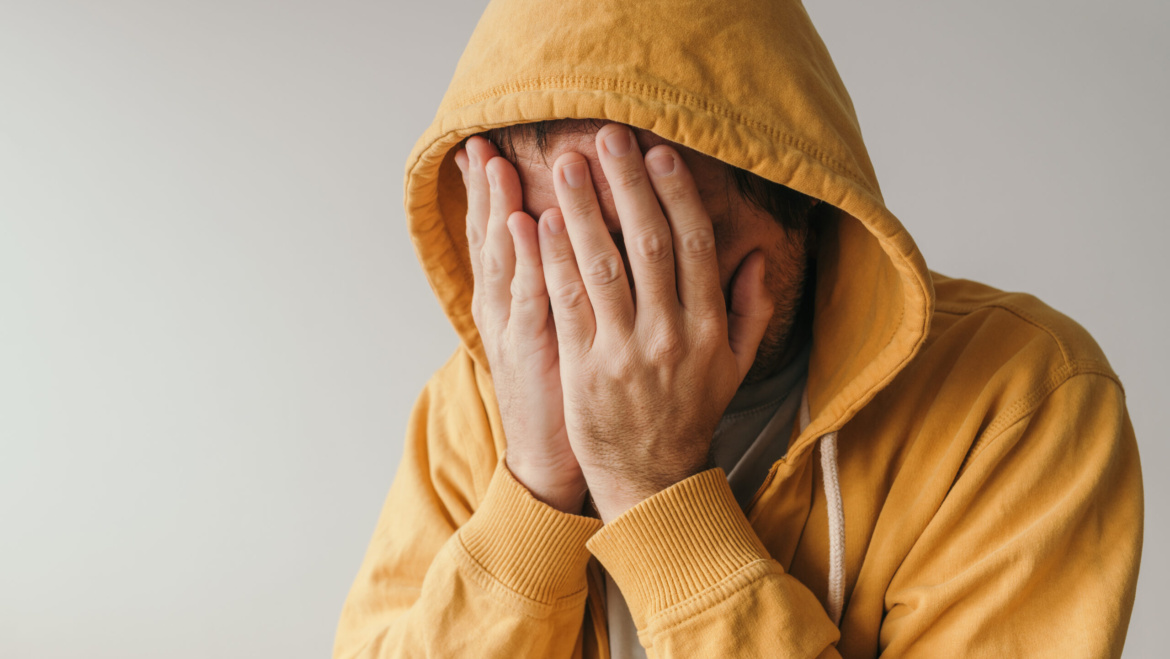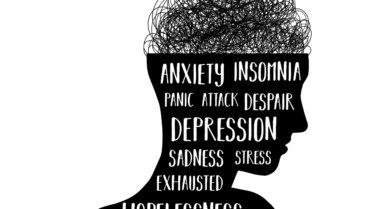Mental health is just as important as physical health, but often times we neglect it until it’s too late. A mental breakdown can happen unexpectedly and can be scary for both the individual experiencing it and for those around them. However, if you know what to look for, you may see warning signs before things reach a breaking point. In this post, we’ll explore how to identify these red flags so that you can recognize when someone you love needs help with their mental health.
Introduction
Mental health is something that should be taken seriously. A mental health breakdown can be defined as a period of time when an individual experiences significant changes in their mental state, which can lead to a decrease in functioning and/or an inability to cope with the demands of everyday life.
There are several warning signs that may indicate that someone is experiencing a mental health breakdown. These warning signs can include, but are not limited to:
- withdrawing from social activities and/or isolating oneself from others
- exhibiting poor self-care (e.g., neglecting personal hygiene, not eating or sleeping properly)
- experiencing drastic changes in mood and/or behavior
- engaging in reckless or risky behaviors
- having difficulty concentrating or making decisions
- feeling hopeless, helpless, or worthless
- having thoughts of self-harm or suicide (If you or someone you know is experiencing these thoughts, please seek professional help immediately.)
It is important to remember that mental illness does not discriminate; it can affect anyone regardless of age, gender, race, or ethnicity. It is also important to remember that mental health issues should be taken seriously and need to be addressed in a timely manner in order to avoid negative consequences. This article aims to provide an overview of the warning signs of a potential mental health breakdown and offer resources for those who may be experiencing one.
Defining a Mental Health Breakdown
A mental health breakdown is a term used to describe a range of mental health problems. It can be used to describe a sudden or gradual deterioration in someone’s mental health, and can include symptoms such as depression, anxiety, paranoia, delusions and hallucinations.
A mental health breakdown can have a significant impact on a person’s life, and can often lead to them feeling isolated, alone and unable to cope. If you are worried about someone you know who may be experiencing a mental health breakdown, it is important to seek help from a professional.
Most Common Warning Signs of a Mental Health Breakdown
Mental health breakdowns can be difficult to spot. Often, the warning signs are there, but they’re easily overlooked or dismissed. If you’re concerned that someone you know is having a mental health breakdown, look for these warning signs:
- Withdrawing from social activities and interactions
One of the most common warning signs of a mental health breakdown is withdrawing from social activities and interactions. If you notice that someone you know is suddenly pulling away from friends, family, and other loved ones, it could be a sign that something is wrong.
- Changes in sleeping habits
Another common warning sign of a mental health breakdown is changes in sleeping habits. If you notice that someone is struggling to sleep or is sleeping more than usual, it could be an indication that they’re struggling mentally.
- Changes in eating habits
Changes in eating habits are another common warning sign of a mental health breakdown. If someone close to you has lost their appetite or seems to be overeating, it could be an indication that they’re not coping well mentally.
- drastic mood swings
Drastic mood swings are another tell-tale sign of a mental health breakdown. If you notice that someone close to you is experiencing sudden and extreme changes in their mood, it’s possible that they’re going through a tough time mentally.
- Isolating themselves from others
If someone you know is isolating themselves from the people around them and spending more time alone, it could be a sign that they’re in the midst of a mental health breakdown. If solitude has become their default, it’s important to reach out and check in.
Physical Symptoms
It’s difficult to know how to spot the warning signs of a mental health breakdown because they vary so much from person to person. However, there are some common physical symptoms that can indicate that someone is struggling with their mental health.
Someone who is having a mental health breakdown may start to look physically unwell. They may lose weight or stop taking care of their appearance. They may also have trouble sleeping or constantly look tired.
Physical symptoms can also manifest in terms of anxiety or agitation. A person may pace back and forth, have racing thoughts, or be unable to sit still. They may also suffer from physical aches and pains, including headaches or stomachaches.
If you notice any of these physical symptoms in yourself or someone else, it’s important to reach out for help. These signs can indicate that a person is in crisis and needs professional assistance.
Psychological Symptoms
Most people experience feeling down or going through a tough time at some point in their lives. However, when these feelings last for more than two weeks and start to interfere with work, school, or home life, it may be a sign of a mental health problem. Some other warning signs that someone may be experiencing a mental health breakdown include:
-Talking about wanting to hurt themselves or end their life
-Expressing feelings of hopelessness or being trapped
-Engaging in reckless or self-destructive behavior
-Increasingly withdrawing from friends and activities
-Sleeping too much or not being able to sleep
-Experiencing drastic changes in appetite
-Abusing drugs or alcohol
-Losing touch with reality or having hallucinations
-Feeling frequent anxiety, panic attacks, or paranoia
Behavioural Signs
When someone is going through a mental health breakdown, their behaviors may start to change. If you notice that your loved one is exhibiting any of the following signs, it may be indicative of a bigger problem:
- Withdrawing from social activities and hobbies that they used to enjoy
- Changes in sleeping patterns, either sleeping too much or not enough
- Eating more or less than usual
4.Increased use of drugs or alcohol
- severe mood swings or becoming easily agitated
- Exhibiting signs of self-harm, such as cutting or burning themselves
- Fixating on negative thoughts and feeling hopelessness or worthlessness on a regular basis
- Having trouble concentrating or focusing on tasks
- Expressing that life is not worth living
- Experiencing extreme anxiety, fear or panic attacks.
Emotional Outbursts
A mental health breakdown is characterized by a sudden, intense burst of negative emotions and behaviors. This can include anything from uncontrollable crying or rage to self-harm or suicidal thoughts.
If you are experiencing any of these symptoms, it’s important to seek professional help immediately. A mental health breakdown can be a sign of a more serious underlying condition, such as depression or anxiety. left untreated, these conditions can worsen and lead to more serious problems.
If you or someone you know is in danger of harming themselves or others, call 911 or go to the nearest emergency room.
Therapy sessions with a psychologist, psychiatrist, or other mental health professional can help you to identify the root cause of your emotional outbursts and learn ways to manage them more effectively. A treatment plan may also be developed to help you develop healthier coping mechanisms for dealing with stress in the future.
Reaching Out for Professional Help
If you or someone you know is experiencing a mental health breakdown, it is important to reach out for professional help. Warning signs of a mental health breakdown can include: feeling overwhelmed, feeling hopeless or helpless, withdrawing from friends and activities, difficulty sleeping, changes in appetite, overwhelming anxiety or fear, and self-harm. If you are concerned about someone who may be having a mental health breakdown, reach out to their friends or family members to see if they are receiving the support they need. It is also important to remember that professional help is available and there are resources that can help.
Conclusion
Recognizing the warning signs of a mental health breakdown is an important skill that can help you look out for yourself and your loved ones. Learning to identify the signs early on can provide an invaluable opportunity to intervene and get help before it becomes more severe. It’s up to us to make sure we remain vigilant in paying attention to ourselves and those around us so that we can provide support when needed. Taking care of our mental health is essential, so please remember these tips whenever possible!





Add Comment